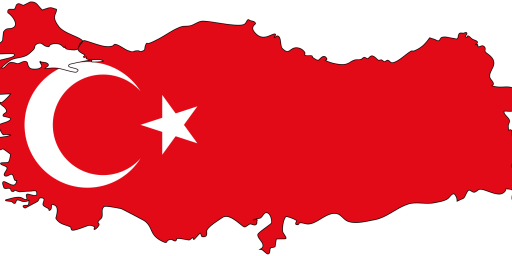Turkey Government Pushing Islam
The government of Recep Tayyip Erdogan is pushing secular Turkish cities toward Islam while at the same time moderating the more radical Islamic areas, Sabrina Tavernise reports for the New York Times.
The shift goes to the heart of the question that has gripped this country for the past two months: As the party settles more deeply into the bureaucracy, will it leave its Islamic roots in the past and build a future that includes secular Turks, or will it impose its religion more rigorously?
The answer is as complex as Turkey itself. In more religious Turkish cities, the party has had a moderating influence, persuading deeply conservative residents to support the European Union. But here in Denizli, a city located closer to Greece than to Iran, which never voted for pro-Islamic parties before Mr. Erdogan’s, the party’s new recruits seem to be laying the groundwork for a more pious society.
[…]
At the heart of the issue is a debate about the fundamental nature of Islam and its role in building an equitable society. Turks like Mr. Zeybekci contend that their country has come a long way since Mustafa Kemal Ataturk’s secular revolution in 1923, and that it no longer needs to enforce controls like preventing women from wearing head scarves in public buildings. “It’s like locking everybody in a stadium, when you know that only three are thieves,” Mr. Zeybekci said, in his office, which has pictures of Mr. Erdogan and Ataturk.
But secular Turks contend that Islam will always seek more space in people’s lives, and therefore should be reined in. They look to the military as secularism’s final defender.
They’re both likely right. Laws that restrict the practice of religion are, by definition, antithetical to a free society. At the same time, it’s far from clear that secularism and Islam can coexist without substantial checks on fundamentalism.





“Laws that restrict the practice of religion are, by definition, antithetical to a free society.”
Not at all or depends on the degree.
Fortunately the world is not quite as mad as to adopt the US definition of freedom of religion, which is to say that you are free to practice any religion, but you must have one and display it proudly. Indeed, a firm belief in one faith or another is almost a prerequisite of office.
For those of us who shudder at US political religiosity, the Turkish example – where the state lets its citizens do whatever they like in their private time but resists allowing any religion to cross the political threshold – is a welcome draught of cool rationality. Turks are not forbidden to fast, attend prayers, wear headscarves or otherwise practice their religion. They just can’t do it in, say, their Parliament. Nor do their political leaders end speeches with pious mouthings such as “God save Turkey.”
Thank God for the Turks.
Shouldn’t that last line simply read:
At the same time, it’s far from clear that secularism and religion can coexist without substantial checks on fundamentalism.
No, because that would require us to recognize similarities between ourselves and those we want to hate, which would completely ruin our moral justifications for hating them. It’s easier to simply acknowledge our differences and hold fast to the belief that since we are good, those differences must make them bad.
Not that that is why James said it the way he did, I’m just generalizing the unspoken mechanism behind the way humans treat different humans. I’m sure James used “Islam” as a specific example because that was what the topic of the post was about. So take you pick which interpretation you want to believe.